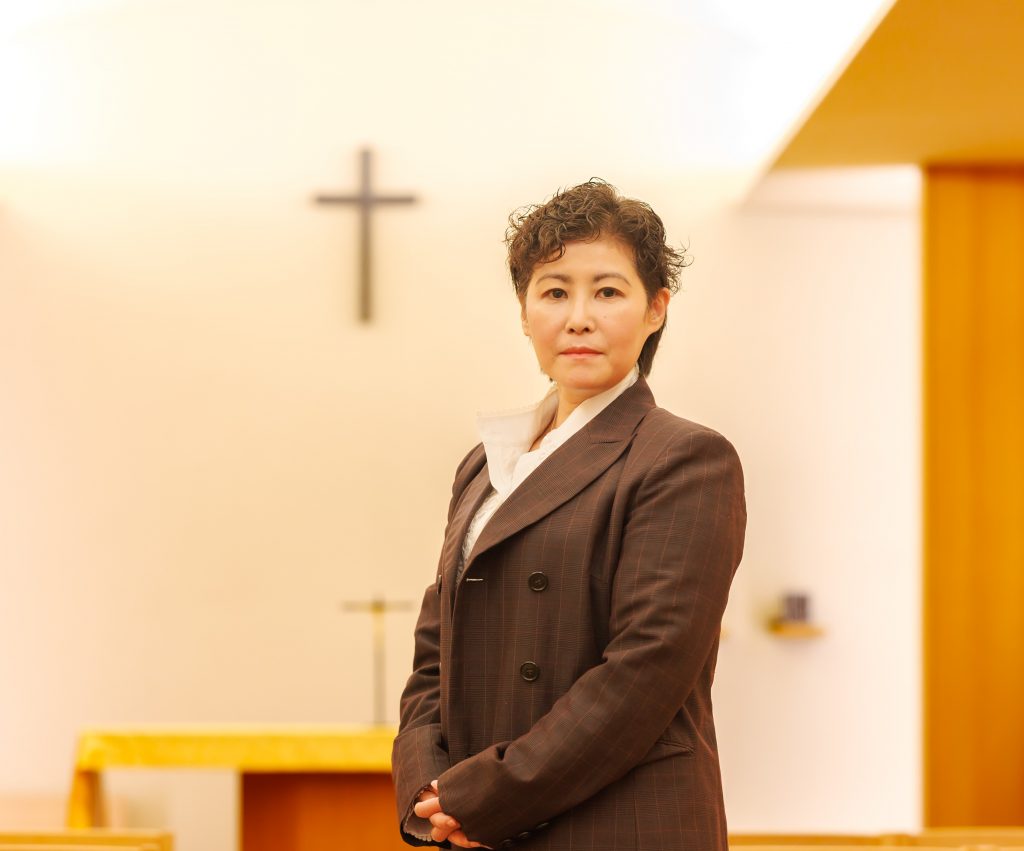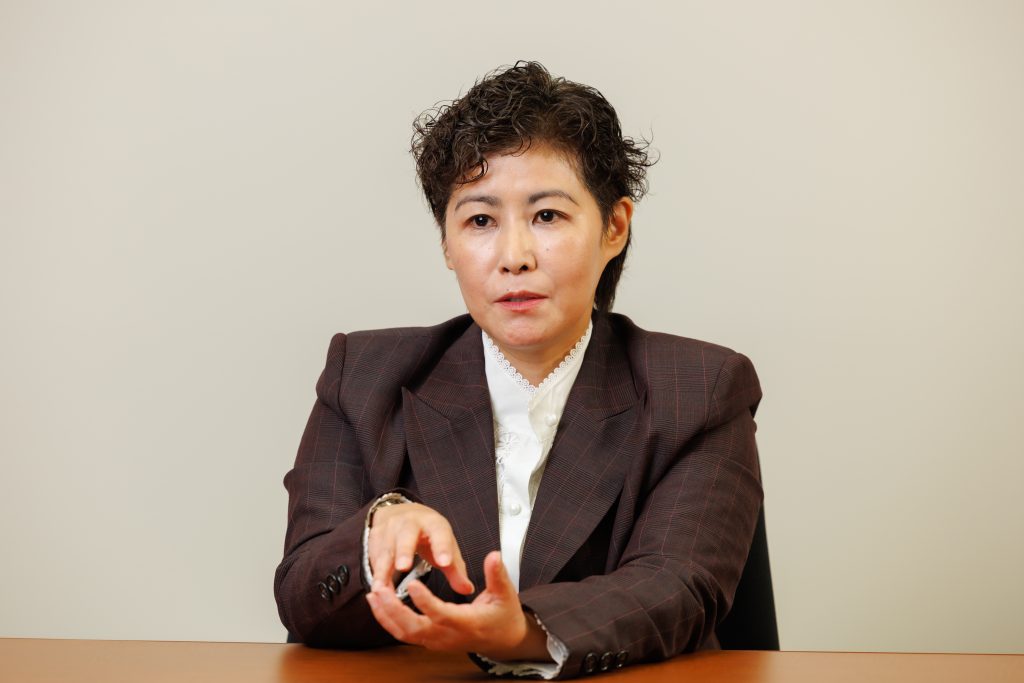
Associate professor Megumi Kodaka from the Faculty of Human Sciences studies methods for the early discovery and intervention of mental illness from the perspective of nursing. She explores ways to connect people to medical care for schizophrenia, which develops easily among young people, and for depression, which has been increasing in young people in recent years.
Schizophrenia is an illness that develops easily from puberty to adolescence. It can be prevented from worsening if properly treated at an early stage, but the tendency is that treatment is often not sought because the patients and their families do not understand what is happening.
During interviews with patients’ mothers, I often hear them say, “My child’s personality made a 180-degree turn and I was very worried. But I thought it was probably due to puberty.” There are many cases where symptoms worsened after parents did nothing, thinking their child would become more stable with time until it became even more difficult to bring their child to see a doctor as time went by.
Patients also realize something is wrong with them but do not talk about wanting to seek medical help. In Japan, there is still a lot of hesitation about visiting a psychiatrist.
Preventing patients from being hidden away in the enclosed space of the home

What can be done to bring patients with mental health issues—who are buried in the community—to a medical institution? This is a long-time theme of my work. In a way, a home can be an extremely isolated space, and medical staff cannot enter without being approached by patients or their families. First, it is necessary for patients and their families to become aware of the mental illness and then understand methods for connecting with medical institutions.
Meanwhile, communities have public health centers and public health nurses. There are also hospitals and clinics rooted in their communities. The Ministry of Health, Labour and Welfare was approached about whether public health center staff, public health nurses, or nurses could visit families and provide support when there are reports of screaming, disruptive behavior, or other incidents from neighbors.
Partly due to this, several years ago, it became possible for public health nurses and nurses to be reimbursed for home visits to patients who have yet to seek treatment or have not received treatment for a long while. This is a big step. It is hoped that this will allow support to be given to families troubled by how to bring their family members to the hospital when the patients themselves reject treatment.
School nurses are also important for early diagnosis. There are more than a few patients who said that they could not talk to their parents but consulted their school nurse. However, school nurses also cannot take action easily if they are asked not to inform the parents. A major issue going forward is about the ways that schools, families, and the medical system can work together.
Trying to analyze mental health using social media context
Another issue is to create a system where patients who are aware of their illnesses can have easy access to medical institutions.
Currently, the increase in suicides among young people due to depression is a serious problem. Early awareness of their mental health problems and connecting them to medical care is an urgent issue. As the first step toward awareness, we are focusing on social media posts.
I am conducting joint research with Sophia University’s Graduate Degree Program of Applied Data Sciences to develop an app that uses artificial intelligence to predict the mental state of the writer of a post. We hope to create a system where using this app will allow people to become aware of their own state of depression and they can then be easily connected to medical institutions or medical helpdesks.
Besides mental illness, it is also necessary to deal early with developmental disorders. Overlooking such disorders during childhood may result in patients facing difficulties when they cannot adapt after they enter society. The purpose of my research is to change society and make it easy for people to live even if they have illnesses or disorders.
The book I recommend
“Aikata wa Togo Shicchosho”(My Partner Has Schizophrenia)
by Kick Matsumoto, Gentosha

House Kagaya from the comedy duo Matsumoto House developed schizophrenia when he was in his second year in junior high school. His symptoms worsened after becoming a comedian, taking a break from work at the peak of the duo’s popularity. I was touched by the big heart of his partner Kick Matsumoto, who watched over Kagaya for 10 years until he returned to work.
-
Megumi Kodaka
- Associate Professor
Department of Nursing
Faculty of Human Sciences
- Associate Professor
-
Graduated from St. Luke’s College of Nursing (presently St. Luke’s International University) and received her Ph.D. in Nursing Science after completing the doctoral program at the college’s graduate school. Took on several positions—such as working at Musashi Hospital, National Center of Neurology and Psychiatry (presently National Center Hospital, National Center of Neurology and Psychiatry) and assistant professor at the Faculty of Nursing and Medical Care, Keio University—before assuming her current position in 2011.
- Department of Nursing
Interviewed: October 2024